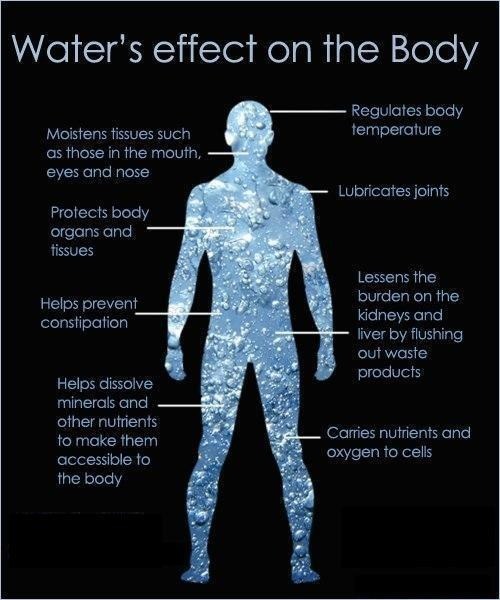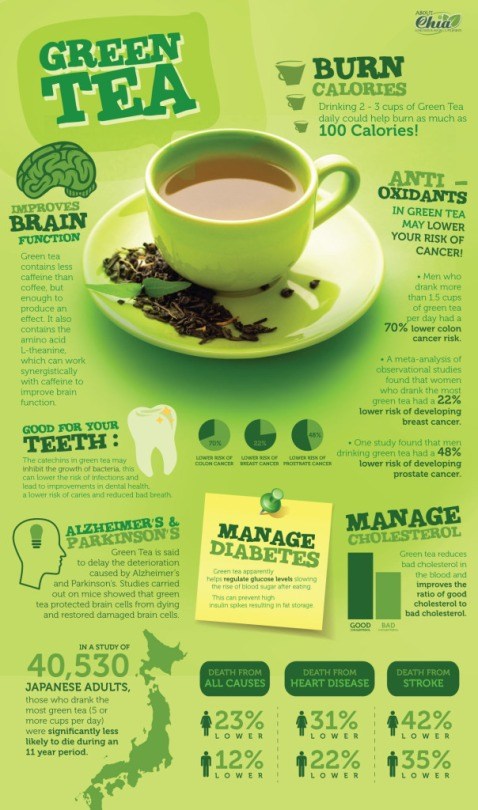Water is essential when we are trying to get healthy. The fact is that many of us do not drink enough water to stay well hydrated and although we can be a bit dehydrated all of the time it is much better to be well hydrated by drinking water
The argument always comes up that you don’t need to drink water, you can get enough from the food that you eat, but really, if you go just a week with an increased water intake you will never go back. You will have more energy, better concentration, be more aware of your surroundings and think like a superstar.

The Colon is the sewer line for everything we put into our mouths and it collects dirt and dust and can clog the engine (our organs). If you don’t go to the bathroom regularly food starts to rot and can stay in the colon for years.
This is where most diseases start, Intestinal diseases like gastritis, diarrhea, polyps, diverticulotis, Crohn’s disease irritable bowel, etc. A clogged colon blocks nutrients from being absorbed and introduces poisons and toxins throughout the body.
Common Types of Drinking Water
Municipal water, also known as tap water, is drinking water that comes directly from the water main, where it comes from wells or rivers. There is no consistency to how good actual tap water is but many cities and municipalities will put out infomation on chemical readings of tap water. This is better for the environment than bottled or filtered water because it does not require material to be shipped into Davis from far away. Municipal water may be drunk from hose or tap, with hose possibly giving a better taste.
Spring water is bottled directly from mountain springs, or wherever the company says it comes from, and will be high in mineral content — high mineral content means more flavor. Since this is essentially why you may not want to drink the local tap water, you may have to do a taste test to determine which spring suits you best.
Drinking water is essentially filtered water; it’s usually just some municipal water (though not necessarily from Davis) that has been run through a filtering process. The source of filtered drinking water can vary, as can the process by which the water is filtered, some people choose to filter their own water with the zero water filters, which are better than Brita. If you are particular about your water, you would do well to do a bit of research to find out how the water the drinking water you purchase is treated.
Water ionizer is appliances that separate water into two parts through the method of electrolysis.
Electrolysis uses an electrical charge present only in certain minerals that are available in beverage to separate the alkaline aspects of water from the acidic aspects of water.
Studies are done that prove that alkaline water is useful within the treatment of a good sort of diseases. It also is a strong antioxidant which may help to slow the aging process also as eliminating free radicals and serving as a sterilizing liquid.
There are many on the market today, some do what they claim, et al. are simply cheap appliances made to tear off an unsuspecting public. it’s important that the acquisition do their research when considering the purchase of a water ionizer.
Distilled water may also be found within supermarkets & grocery stores, but this is not typically sold as “drinking water,” and is intended for use in appliances, such as irons. Distilled water is actually boiled in a still and the condensate collected and bottled — this process removes both ionic and non-ionic organic contaminants including minerals. Mineral deposits left by drinking waters can damage clothing, affect appliance performance, or otherwise screw up the results of your experiment.
Deionized water isn’t typically readily available to the average consumer and requires a fairly expensive process. It is most often used in labs to ensure that chemistry results aren’t skewed by dissolved impurities in modern water supplies: ions such as calcium, sodium, chlorides, etc. Deionization removes ions from water via ion exchange, much like those things in clubs that make smoke stick to your clothing. Safeway sells purified water under its own label by the gallon, which is indicated as having been either deionized or filtered by reverse osmosis.
Ionized Water Ionized water allows us to maintain an alkaline pH (6.9-7.2) which, helps us to maintain an environment in our bodies that is NOT conducive to disease. One can take the best nutrients, spend hundreds regularly, but barely 5-10% of the nutrition will pass through if you have a dirty acidic colon. Drinking alkalized water can prove to be a much better alternative for maintaining a healthy colon as it works to gently and effectively detoxify the colon so that vital nutrients can be better absorbed into the body by neutralizing free radicals.
Purified water may also be found in your supermarket aisle, and this water has been treated to remove both minerals and smaller particles. Hikers are familiar with this difference, because water purifiers remove particles smaller than a micron, while microfilters typically filter down to about 1 micron — an absolute 1 micron filter is sufficient to eliminate cryptosporidium and giardia cysts, but not small enough to get rid of bacteria and viruses.
Water may be treated by reverse osmosis or chemically, e.g. addition of iodine, to remove contaminants to this level. Most home systems don’t filter down to this level and won’t produce purified water. Not so much a problem unless you think livestock may have been using your water source, but something to keep in mind when purchasing a filtration system… it may not be filtering everything you think! And ideally, we want a little bit of flavor in our water, so it’s not necessarily desirable to filter out everything — “potable water” isn’t necessarily “purified water.”



